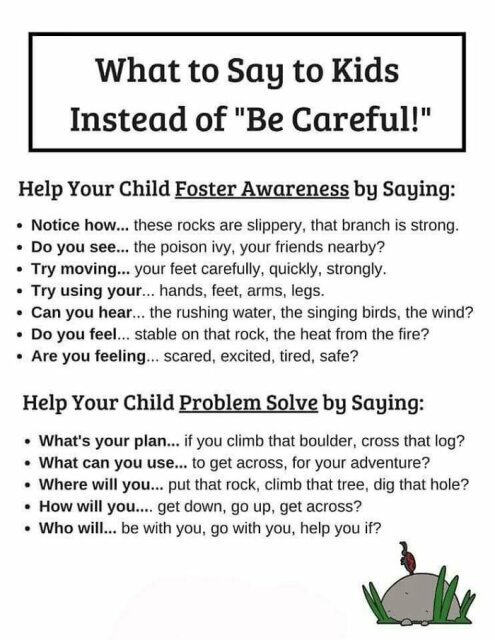What’s the point of not saying be careful?
It starts off the hop that they should be scared of the thing they are trying to do. Kids don’t hear the implied stuff you might mean when you say that to an adult that is cutting wood with saw, for example.
You want your child to figure out how to do it, not to be scared of doing it.
It starts off the hop that they should be scared of the thing they are trying to do.
The irony of a society who constantly says “god be with you” (good-bye) but shouldn’t say “be careful”.
“God be with you” seems like a positive statement, maybe I’m wrong there. I also can’t recall the last time I heard that said.
Helping the child wrap their head around doing risky or dangerous things in ways to reduce risk is very handy for them as they get older and have to make choices and navigate stuff when they are starting to become more independent.
First, what the other comment said about not starting from “be scared”, and secondly, they don’t know how to be careful yet.
Handing an adult an unfamiliar power tool and saying “don’t hurt yourself” isn’t actually going to help them not hurt themselves.
So telling then how to be careful goes a lot further. Asking them for their plan makes them actually have one.



